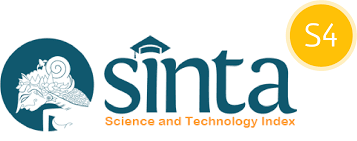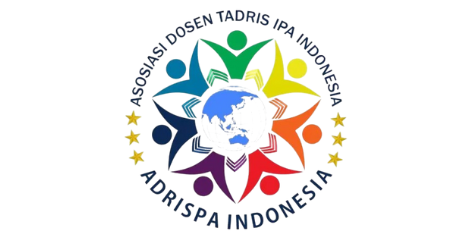Opini Mahasiswa Pendidikan IPA Universitas Tidar Terhadap Praktikum Online
DOI:
https://doi.org/10.35719/vektor.v2i1.23Keywords:
pandemic covid-19, online practicum, student opinionAbstract
Praktikum Online ini sangat berpengaruh bagi mahasiswa agar ketika turun di lapangan kerja tidak kaget dalam menghadapi kegiatan yang telah ada, maka didalam praktikum ini diusahakan untuk terciptanya efektivitas didalam praktikum. Berhubungan dengan kebijakan mengenai praktikum online yang membutuhkan teknologi didalam proses berjalannya kegiatan tersebut. Metode penelitian yang digunakan yaitu deskriptif kualitatif yang melibatkan seluruh mahasiswa Pendidikan IPA Tahun Angkatan 2017-2020 dengan metode survey Random Sampling dan diperoleh sebanyak 54 Mahasiswa. Penelitian ini bertujuan untuk melihat opini mahasiswa pendidikan IPA universitas tidar terhadap praktikum online agar memastikan mahasiswa tersebut berada pada tahap pemahaman yang baik mengenai praktikum online. Data penelitian diperoleh dengan menggunakan kuisioner berupa google form yang disebar dan diisi secara online. Opini mahasiswa pendidikan IPA memperoleh tanggapan sebanyak 54 mahasiswa terdiri dari 90,7% mahasiswa perempuan dan 9,3% mahasiswa laki-laki. Responden tersebut terdiri dari mahasiswa Angkatan 2017-2020 dengan persentase 5,6% Angkatan 2017, 20,4% Angkatan 2018, 64,8% Angkatan 2019 dan 9,3% Angkatan 2020, dengan kategori “kurang baik” berdasarkan hal tersebut praktikum online banyak mengundang ketidakpahaman.
Kata Kunci: pandemi covid-19, praktikum online, opini mahasiswa
Science Education Study Program at FKIP-Tidar University, has several practicum courses. The existence of the COVID-19 pandemic is based on the implementation of practicum online. To avoid the failure of material understanding and knowing how effective online practicum is, one way to do this is to know the opinions of students. The research method used is descriptive qualitative involving all students of Science Education Year 2017-2020 with Random Sampling survey method and obtained as many as 54 students. This study aims to look at the opinion of students of science education Tidar University to online practicum then ensure the student is at the stage of good understanding of online practicum. Research data obtained by using questionnaires in the form of google forms are distributed and filled in online. The opinion of Science Education students received a response as many as 54 students consisting of 90.7% female students and 9.3% male students. The results of the study are in the category of "less good" based on the opinion that online practicum has not been effective enough in its application. Good understanding of students to the ease of running online practicum implemented invites opinions as much as (72.3%). Assumption that online practicum has a positive impact (56.4%); existence campus facilities in online practicum with a percentage (68.5%); greatest motivation, want to get a value (22%). While the constraints experienced by students are due to lack of understanding of online practicum guidelines, so it takes harmony of communication between lecturers and students.
Keywords: pandemic covid-19, online practicum, student opinion
References
Anhusadar, Laode. 2020. “Persepsi Mahasiswa PIAUD Terhadap Kuliah Online Di Masa Pandemi Covid 19.” KINDERGARTEN: Journal of Islamic Early Childhood Education 3(1):44.
Basuki, Kustiadi. 2019. “KEEFEKTIPAN PENERAPAN MEDIA DARING DALAM PROSES PEMBELAJARAN MAHASISWA FKIP UNIVERSITAS ASAHAN.” ISSN 2502-3632 (Online) ISSN 2356-0304 (Paper) Jurnal Online Internasional & Nasional Vol. 7 No.1, Januari – Juni 2019 Universitas 17 Agustus 1945 Jakarta 53(9):1689–99.
Darmalaksana, Wahyudi. 2020. “MENGATASI BEBAN KULIAH ONLINE DENGAN KIMIA ‘CINTA’ UNTUK PENCAPAIAN MENEMBUS BATAS : Sebuah Pengalaman Subjektif Dari Pembelajaran Metode Penelitian Hadist.” Urnal Kelas Menulis Fakultas Ushuluddin UIN Sunan Gunung Djati Bandung 2020 1–10.
Febiola, Richel, Nadya Gultom, and Evelyn Hemme Tambunan. 2021. “Pengalaman Mahasiswa Program Studi Pendidikan Ners Dalam Pembelajaran Daring Di Masa Pandemi Covid-19.” Stikes-Nhm.E-Journal.Id 2.
Firman, Firman, and Sari Rahayu. 2020. “Pembelajaran Online Di Tengah Pandemi Covid-19.” Indonesian Journal of Educational Science (IJES) 2(2):81–89.
Hikmat, Endang Hermawan, Aldim, and Irwandi. 2020. “Efektivitas Pembalajaran Daring Selama Masa Pandemi Covid-19 : Sebuah Survey Online.” Digital Library, UIN SUnan Gung Djati, Bandung 1–7.
Ifadah, Zaqqiyatul, and Ainur Rochmaniah. 2011. “OPINI MAHASISWA TERHADAP WEBSITE UNIVERSITAS MUHAMMADIYAH SIDOARJO SEBAGAI MEDIA INFORMASI.” (2010):68–70.
Kartawidjaja, Jesslyn. 2020. “EFEKTIVITAS PEMBELAJARAN BASIS ONLINE DI IAIN TULUNGAGUNG DENGAN ADANYA KEBIJAKAN PHYSICAL DISTANCING ERA PANDEMI COVID 19.” Orphanet Journal of Rare Diseases 21(1):1–9.
Nabila, Rahmadhani. n.d. “PENGARUH MASA PANDEMI COVID 19 TERHADAP TINGKAT STRES MAHASISWA DALAM MELAKSANAKAN KULIAH ONLINE.”
Nainggolan, Juliper, Sanggam Pardede, and Imelda Butar-butar. 2020. “Survei Kendala Dosen Fakultas Keguruan Dan Ilmu Pendidikan Universitas HKBP Nommensen Dalam Pelaksanaan Perkuliahan Online.” Jurnal Suluh Pendidikan 8(2):1–8.
Purwanto, Agus, Rudy Pramono, Masduki Asbari, Priyono Budi Santoso, Laksmi Mayesti Wijayanti, Chi Hyun Choi, and Ratna Setyowati Putri. 2020. “Studi Eksploratif Dampak Pandemi COVID-19 Terhadap Proses Pembelajaran Online Di Sekolah Dasar.” EduPsyCouns: Journal of Education, Psychology and Counseling 2(1):1–12.
Rachmawati, Yuanita, Muh. Ma’arif, Ninik Fadhillah, Nailil Inayah, Khoirotul Ummah, Muh. Nuh. Fathsyah Siregar, Rela Amalyaningsih, Fahira Aftannaila A. C., and Aisyatul Auliyah F. 2020. “Studi Eksplorasi Pembelajaran Pendidikan IPA Saat Masa Pandemi COVID-19 Di UIN Sunan Ampel Surabaya.” Indonesian Journal of Science Learning Volume 1,(1):32–36.
Rasyida, Hikma. 2020. “Efektivitas Kuliah Daring Di Tengah Pandemik.” Jurnal Edukasi 1(November):1–8.
Riadi, Selamat, Ellyn Normelani Normelani, Muhammad Efendi, Irawaty Safitri, and Gusti Firza Ismi Tsabita. 2020. “Persepsi Mahasiswa Prodi S1 Geografi FISIP ULM Terhadap Kuliah Online Di Masa Pandemi Covid-19.” PADARINGAN (Jurnal Pendidikan Sosiologi Antropologi) 2(2):219.
Sadikin, Ali, and Afreni Hamidah. 2020. “Pembelajaran Daring Di Tengah Wabah Covid-19.” Biodik 6(2):109–19.
Sari, Arlinda Puspita. 2021. “Aktivitas Mahasiswa Dalam Pembelajaran Daring Berbasis Konferensi Video : Refleksi Pembelajaran Menggunakan Zoom Dan Google Meet.” 03(02):130–37.
Susanto, Gatut, Suparmi Suparmi, and Endah Yulia Rahayu. 2020. “The Emotional Geography of International Students in Online Bahasa Indonesia Learning during the COVID-19 Pandemic Geografi Emosi Mahasiswa Internasional Dalam Belajar Bahasa Indonesia Secara Daring Pada Masa COVID-19.” Journal of International Students 10(S3):161–79.
Utomo, Supri Wahyudi, and Moh. Ubaidillah. 2018. “Pemanfaatan Aplikasi Whatsapp Pada Pembelajaran Berbasis Masalah Untuk Mata Kuliah Akuntansi Internasional Di Universitas Pgri Madiun.” Kwangsan: Jurnal Teknologi Pendidikan 6(2):199–211.
Z.R, Hirdha Nurfarini., and Wildan Saugi. 2020. “Pengaruh Kuliah Online Terhadap Minat Belajar Mahasiswa Pendidikan Agama Islam (PAI) Di IAIN Samarinda.” El-Buhuth: Borneo Journal of Islamic Studies 2(2):121–31.
Zunaidah, Farida Nurlaila. 2020. “Persepsi Mahasiswa PGSD Universitas Nusantara Pgri Kediri Terhadap Perkuliahan Daring Selama Masa Pandemi.” Konstruktivisme : Jurnal Pendidikan Dan Pembelajaran 12(2):185–92.
Downloads
Published
How to Cite
Issue
Section
License
Copyright (c) 2021 VEKTOR: Jurnal Pendidikan IPA

This work is licensed under a Creative Commons Attribution-ShareAlike 4.0 International License.
Authors who publish with this journal agree to the following terms:
- Authors retain copyright and grant the journal right of first publication with the work simultaneously licensed under the terms of the CC BY-SA 4.0 License that allows others to share the work with an acknowledgment of the work's authorship and initial publication in this journal.
- Authors are able to enter into separate, additional contractual arrangements for the non-exclusive distribution of the journal's published version of the work (e.g., post it to an institutional repository or publish it in a book), with an acknowledgment of its initial publication in this journal.
- Authors are permitted and encouraged to post their work online (e.g., in institutional repositories or on their website) prior to and during the submission process, as it can lead to productive exchanges, as well as earlier and greater citation of published work.







